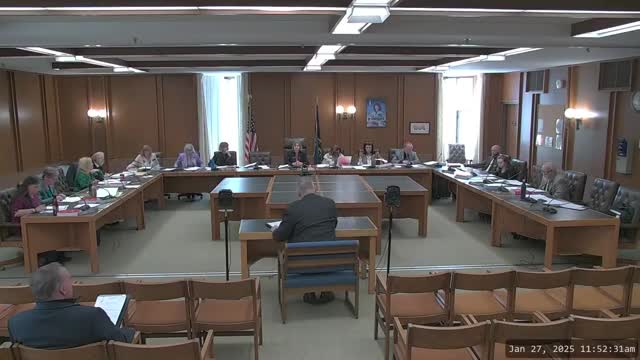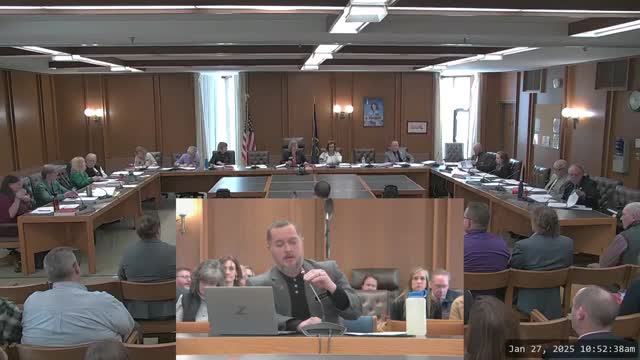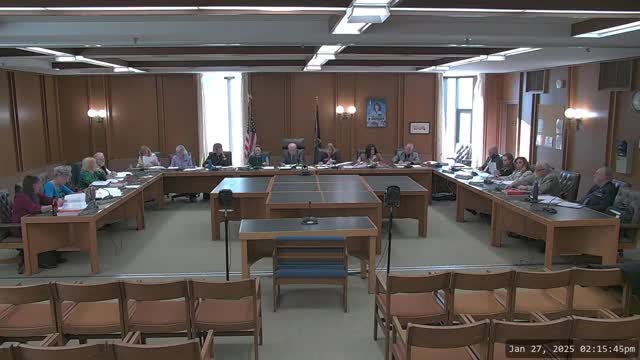Article not found
This article is no longer available. But don't worry—we've gathered other articles that discuss the same topic.

Rep. Leon seeks law to make in‑district school transfers presumptively allowed "in students' best interest"

Bill to broaden experience eligible for school‑nurse certification draws support from nursing association

Legislative hearing on HCR 6 draws heated testimony over Bow superintendent removal

Committee hears bill to tighten 'evidence‑based' definition for classroom methods

